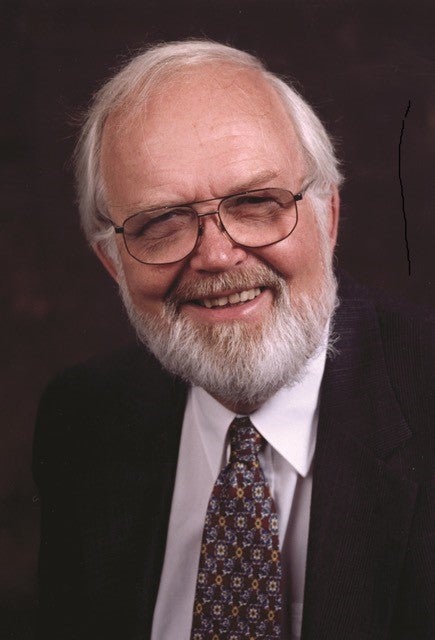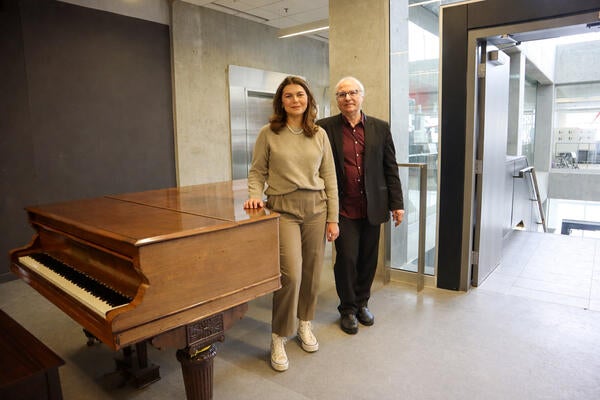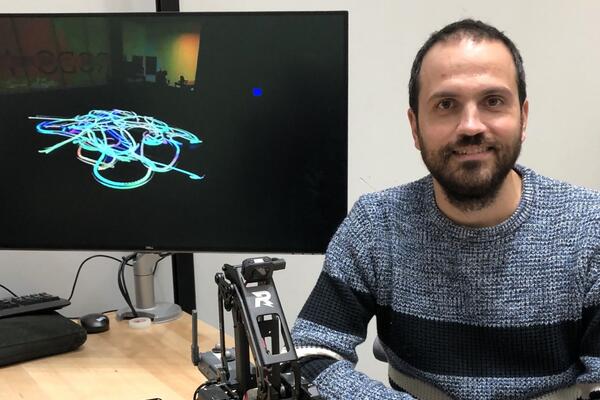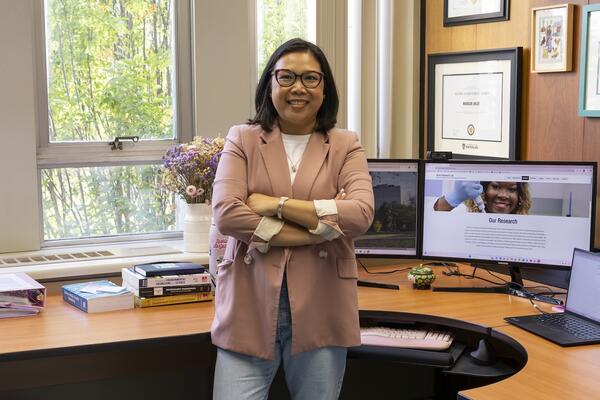
Remembering Engineering’s first PhD graduate
Carl Turkstra funded Waterloo's Turkstra Chair in Urban Engineering

Carl Turkstra funded Waterloo's Turkstra Chair in Urban Engineering
By Carol Truemner Faculty of EngineeringCarl Turkstra (PhD ’63, civil engineering) died May 22 after a distinguished career as an academic who transformed building codes followed by one as a successful business owner.
When Turkstra joined the Faculty’s newly launched PhD program in the late 1950s, building codes aimed to achieve absolute safety.
Turkstra proposed a radical alternative in his doctoral research work: apply risk analysis instead.
Doug Wright, then the dean of Waterloo Engineering, ensured Turkstra’s resulting thesis landed on all the right desks, paving the way to an illustrious academic career that spanned three countries and two decades.
Turkstra, who was awarded the Faculty's first doctorate, twice earned the American Society of Civil Engineering’s State of the Art Award, helped to transform building codes around the world and developed what is now known as Turkstra’s Rule for load construction in structural design.
helped to transform building codes around the world and developed what is now known as Turkstra’s Rule for load construction in structural design.
His academic achievements were recognized in 1997 with Waterloo Engineering’s Alumni Achievement Medal for Academic Excellence.
Carl Turkstra (PhD ’63, civil engineering)
In 1989, he gave up his academic career to take over his family’s Hamilton-based lumber business.
"His timing could have been better as he arrived during the most significant construction recession since the Depression," his obituary reads.
Carl buckled down and transformed the company. He cared passionately about the employees at Turkstra Lumber and was instrumental in introducing benefits and a pension plan that was, at the time, unheard of in the retail lumber industry."
In his retirement, Turkstra launched three philanthropic foundations. The Turkstra Foundation focuses on disaster relief; Your Canada, Your Constitution advocates for political reform; and the Incite Foundation supports the arts in Hamilton, ON.
“I can’t sing or dance or any of that stuff, but I understand how important arts and culture are,” Turkstra said in a 2017 interview.
Nor did he forget his first calling. In 2017, he began working with Waterloo Engineering to fund an endowed chair and graduate program in urban engineering. The Turkstra Chair in Urban Engineering is currently held by Nadine Ibrahim, a civil and environmental engineering lecturer.
An urban engineering speaker series named for Turkstra was launched by Waterloo Engineering in 2019.
Turkstra is survived by his wife, Kate, son Peter (Karen Turkstra), daughter Jennifer Turkstra (Matthew Soar) and four grandchildren.
“Always the engineer, he asked that his ashes be spread at the foot of the Brooklyn Bridge,” his obituary reads. “Second only to his love for his wife, he loved his engineering ring.”
Main photo is of Nadine Ibrahim, the Turkstra Chair in Urban Engineering, and Carl Turkstra

University of Waterloo researchers Olga Ibragimova (left) and Dr. Chrystopher Nehaniv found that symmetry is the key to composing great melodies. (Amanda Brown/University of Waterloo)
Read more
University of Waterloo researchers uncover the hidden mathematical equations in musical melodies

Read more
Robots the size of a soccer ball create new visual art by trailing light that represents the “emotional essence” of music

Read more
Waterloo prof leads a team of researchers to improve water quality through a community-focused approach underpinned by technical excellence
The University of Waterloo acknowledges that much of our work takes place on the traditional territory of the Neutral, Anishinaabeg, and Haudenosaunee peoples. Our main campus is situated on the Haldimand Tract, the land granted to the Six Nations that includes six miles on each side of the Grand River. Our active work toward reconciliation takes place across our campuses through research, learning, teaching, and community building, and is co-ordinated within the Office of Indigenous Relations.